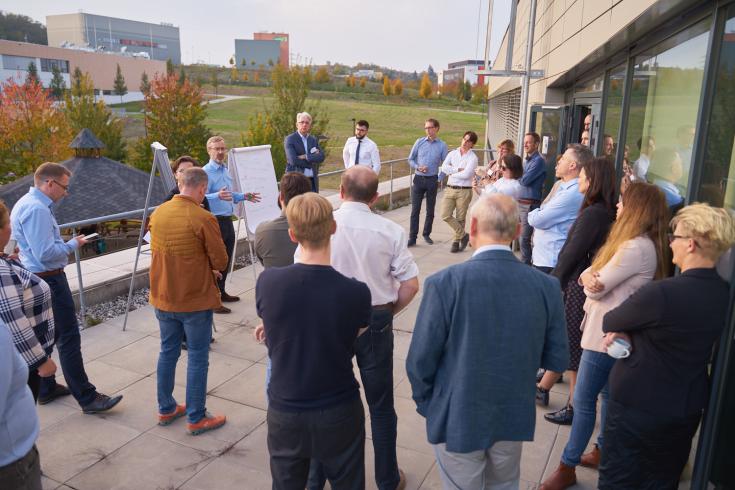Triple transition and corporate responsibility – a new framework for businesses

No one should be left behind in the transition to a more sustainable and competitive economy. The triple transition makes a step forward in acknowledging how societal impacts should gain higher importance in shaping EU policies for growth. Businesses are directly concerned, and so are policymakers working on the ground.
The European Green Deal paved the way for a new understanding of economic development: the digital and the green transitions should not be tackled separately but simultaneously to reinforce each other for greater and faster benefits. This is the core of the concept of a twin – digital and green - transition.
However, the twin transition cannot be successful without addressing the social dimension of the transformation. The social transition aims to ensure that everyone is included in the process towards a more sustainable and competitive economy. The opportunities and challenges of the twin transition should be shared fairly and equitably among all segments of society. This is why experts and policymakers have started to talk about a triple transition, which integrates the digital, green and social aspects of the EU's vision for the future – the European Growth Model.
The European Growth Model put into practice
On 5 July 2023, one of the first events organised under the Spanish Presidency of the Council of the European Union was titled "Triple Transition: shaping international cooperation to address digital, green and social transitions". This has set the scene for the development of an upgraded transition policy.
The Model has ambitious objectives: ensuring that the transitions are mutually reinforcing, achieving climate neutrality and circularity by 2050, enhancing the competitiveness and resilience of Europe's industry, and reducing the social and territorial inequalities with a just transition.
All along 2023, the EU has worked on providing updated regulations in line with the above-mentioned policy framework. The new Corporate Sustainability Reporting Directive (CSRD) replaced the Non-Financial Reporting Directive (NFRD). The European Commission adopted the European Sustainability Reporting Standard, creating new reporting obligations for companies, to take effect by 2026 at the latest.
The impact on businesses
The competitiveness of the private sector across the whole EU territory will be directly affected by such a new regulatory framework. For businesses, this new policy and societal context implies reshaping their understanding of corporate responsibility and sustainability, at the intersection of economic, environmental and social considerations, as the European corporate sustainability legislation tightens.
These new reporting regulations will affect not only large companies but also SMEs along the value chain. They will need to adapt their data collection and reporting practices, as well as their business models and operations, to meet the new standards and expectations of their customers and stakeholders.
However, to this day, the extent of data collection and reporting requirements is still unclear to many businesses. Similarly, good practices on how to best organize to meet the new requirements are still missing. This is critical for SMEs as a lack of preparedness might lead to losing competitiveness and potentially being excluded from global supply chains.
Local and regional policies in support
In this context, the role of regional and local authorities is essential to support companies in general and SMEs in particular. The digital, green and social transition will be a key topic for the new generation of Interreg Europe projects. There are already several projects addressing more specifically the digital and green transition, integrating social aspects like skills or lifelong learning policies, such as:
The first learnings can be taken from our recent webinar on the twin transition for SMEs.
Projects such as the ORIGINN project, focussing on economic and social transformation in rural areas, and LOTTI, tackling industrial transition processes building on local identities, are addressing challenges of the triple transition.
Policymakers are called to draw inspiration from their good practices and upcoming policy developments in support of their local business ecosystems.
About the author
By Luc Schmerber, Thematic Expert for a Smarter and more Social Europe.
Luc has over 20 years of experience in the design of business support ecosystems on behalf of regional public authorities and business support organisations, with a focus on entrepreneurship and cluster organisations. He has also gained experience in working directly with SMEs on improving their competitiveness.
